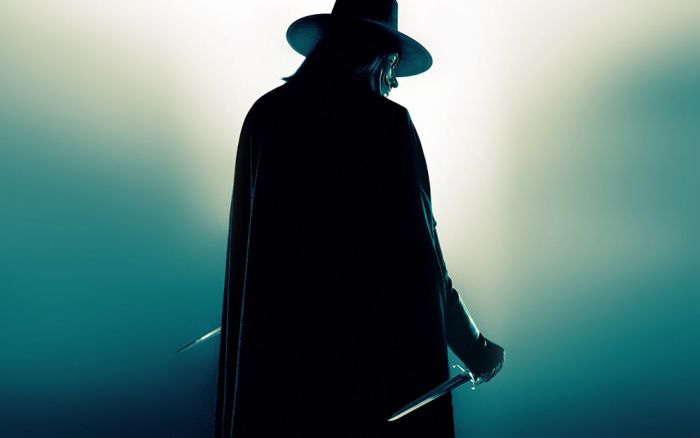More On V for Vendetta

V for Vendetta opens today. I’m still excited about seeing it but my enthusiasm has been tempered by various thoughts I’ve read from folks whose opinions I trust.
And also worth noting is a recent two-part interview with V for Vendetta creator Alan Moore. Much of the interview focuses Moore’s gripes with DC Comics and the comics industry as a whole, but there’s some very interesting stuff concerning V for Vendetta, the inspiration for the book, and Moore’s thoughts on the Wachowskis’ adaptation.
From the first part:
As far I’m concerned, the two poles of politics were not Left Wing or Right Wing… It seemed to me the two more absolute extremes were anarchy and fascism. This was one of the things I objected to in the recent film, where it seems to be, from the script that I read, sort of recasting it as current American neo-conservatism vs. current American liberalism…
…what I was trying to do was take these two extremes of the human political spectrum and set them against each other in a kind of little moral drama, just to see what works and what happened. I tried to be as fair about it as possible. I mean, yes, politically I’m an anarchist; at the same time I didn’t want to stick to just moral blacks and whites. I wanted a number of the fascists I portrayed to be real rounded characters. They’ve got reasons for what they do. They’re not necessarily cartoon Nazis. Some of them believe in what they do, some don’t believe in it but are doing it any way for practical reasons. As for the central character of the anarchist, V himself, he is for the first two or three episodes cheerfully going around murdering people, and the audience is loving it. They are really keyed into this traditional drama of a romantic anarchist who is going around murdering all the Nazi bad guys.
At which point I decided that that wasn’t what I wanted to say. I actually don’t think it’s right to kill people. So I made it very, very morally ambiguous. And the central question is, is this guy right? Or is he mad? What do you, the reader, think about this? Which struck me as a properly anarchist solution. I didn’t want to tell people what to think, I just wanted to tell people to think, and consider some of these admittedly extreme little elements, which nevertheless do recur fairly regularly throughout human history.
And from the second part:
I don’t want to say [V]‘s the hero any more than I really want to say he’s the villain. He’s a force. It’s funny with fascism or anarchy, yes, they are the two poles of politics but neither of them are actually, strictly speaking, a political system. Fascism is a kind of weird mystical system and anarchy is an attempt to move beyond the need to be politic, the need to manipulate large masses of people. So I tend to think V is pretty much an allegorical force, an idea given human form. And, obviously I have a lot of sympathy with some of his basic ideas. But I think that killing people is wrong.
I’ll find out for myself how V for Vendetta (the movie) stacks up when I see it this weekend.